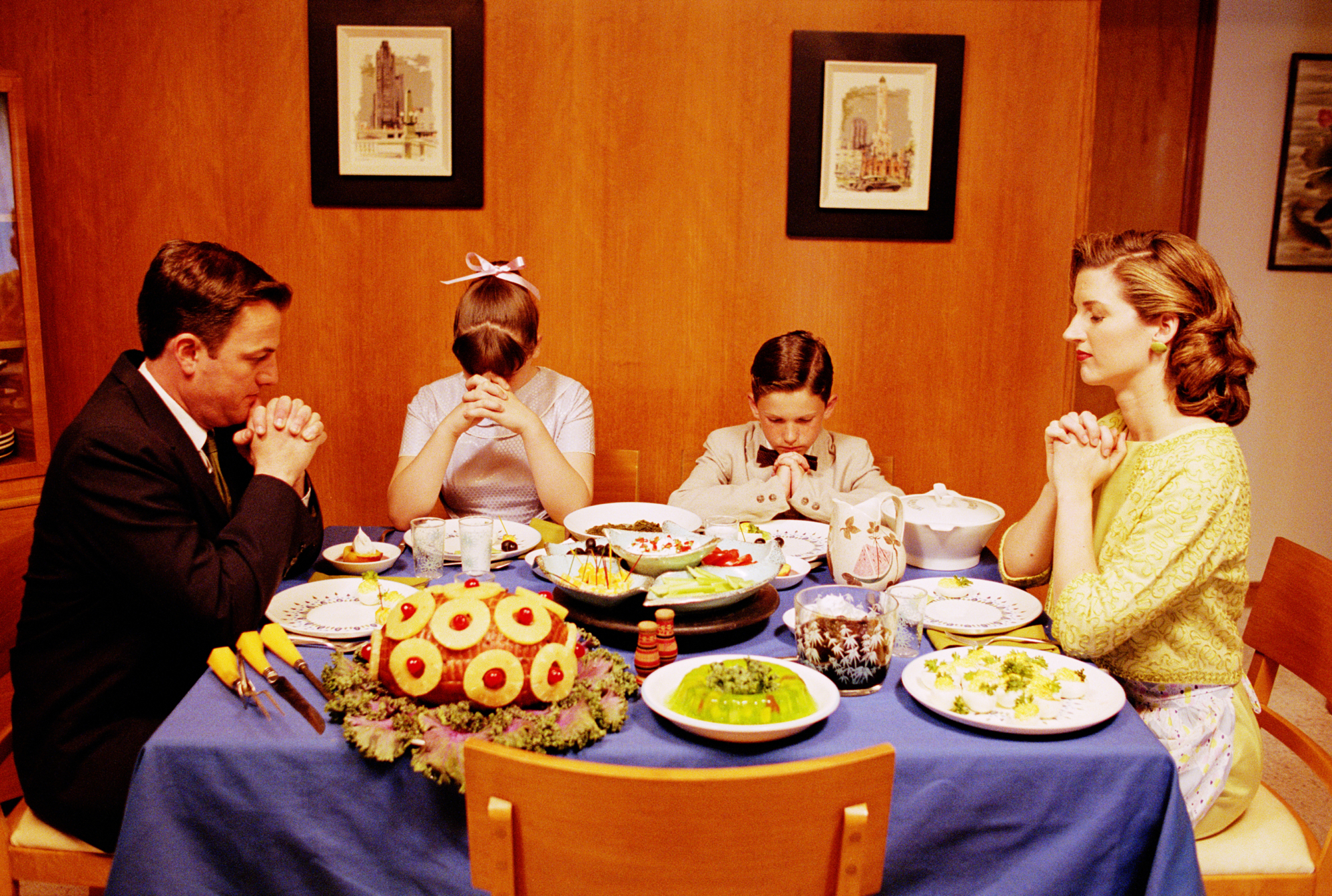I am no gymnast; however, being a product of a dyed-in-the-wool Southern girl and a staunch and proper northerner sometimes stretches me into doing the splits across the Mason-Dixon Line.
It’s a scant 3 weeks til Thanksgiving, which reminds me of the strange and serious divide we used to live as kids. After driving over the river and through the woods, whichever grandparents’ house we landed at for the holiday made for an entirely different Thanksgiving.
If we headed north, up to Pennsylvania, the big bird would be full of something called stuffing, kind of a wet and sticky bread concoction that was baked inside the turkey. Getting it inside there called for sticking a hand into the bird’s empty, raw cavity and spooning it in. This is probably how the unfortunate turducken was invented: some squeamish fellow could no longer stomach the stuffing process and sent other lesser birds in one after the other until the turkey could hold no more. The northern table boasted a bowl of cranberry sauce, with round juicy cranberries chunked throughout; long, thin string beans, the French kind, and mashed potatoes and gravy.
If we headed south, to Florida, the bird would be empty, its neck would be boiling in a pot on the stove, and in the oven would be a pan of dressing, made of skillet cornbread, broth from that boiled neck, and dotted with butter. It would emerge golden and crispy on the outside and creamy on the inside, with just the right amount of sage. Cranberry sauce on the southern table would have been a matter of opening a can at both ends and schlopping it onto a plate so it maintained its can shape, which is how cranberries appear in nature. Flat, bacon-flavored green beans would have come from a jar canned from the summer garden’s bounty.
At our house, while the turkey slowly roasted, my mother would steal bits from that boiling turkey neck and eat the gizzards, too, parts my northern kin threw away. No doubt this impulse goes back to that scene in Gone With the Wind, when Scarlett O’Hara rises from the ground, her fist in the air, vowing to never be hungry again. In the South, when your Boogeyman is Sherman and the war of northern aggression, you eat everything.
Then there was grace. At the northern table, we bowed our heads, performed the sign of the cross in unison (all, except my mother), and recited together:
“Bless a Solard, For these Thigh giffs, Which we our battery sieve, From thy bow’d knee, Through Cry Solard, Amen.”
Or at least that’s how it sounded to my childish ears. Eventually, I learned it was more than gibberish: “Bless us, Oh Lord, for these Thy gifts, which we are about to receive, from Thy bounty. Through Christ, our Lord, Amen.”
At the southern table, we didn’t say grace. When my grandfather reached for the biscuits, that was the cue to dig in. Grace was my grandmother’s pride in her cooking, and the hushed quiet that fell over the table as everyone savored each bite. I half wondered, as a kid, if maybe the southern grandmother’s cooking didn’t require as much insurance, coming mostly straight from the garden, which was somehow closer to God than shelved cans from the A&P.
My own little family has now been diluted to only 1/4 northern, and our Thanksgivings are decidedly of the southern ilk. My father-in-law is the official sage tester for the dressing, taking one for the team and facing salmonella every year as he repeatedly tastes the dressing as his wife prepares it, despite the raw eggs. We say a grace that is less recitation and more wandering conversation with our Provider. When my father is there, he listens silently and finishes with his solo sign of the cross, while my decidedly un-Catholic in-laws pretend not to notice so he’s not uncomfortable.
For awhile, after my parents eloped, it was a bit like the Capulet’s and Montague’s. Their union was a convergence of two rivers, the upheaval in the middle sometimes a Bermuda Triangle. It took time for the bristling and resentment to die down. Probably all families are like that, some. We can be contemptuous and jealous, whining petty brats. Three ring circuses of dysfunction.
So when we can sit together without waving flags or firing shots and take a bite of forgiveness or swallow a bit of pride, we say grace to each other. When we can count a few blessings, appreciate who’s no longer there around the table and be grateful for who we’ve still got, even though a little bit of their crazy is showing, grace abounds. They’re silently thinking the same about you (*wink, wink*).
If you can pause for a moment of gratitude before the shoveling ensues, savor it. Savor your abundance of family and food. Laugh out loud in delight if you need to at the patchwork of loopy, messy souls that have your back, some of whom seem to be trying to be hysterical for a living. God bless ’em. Amazing grace.









I especially love the childhood understanding of grace, here! It made me laugh out loud. Keep it up, Girl, you have a gift.